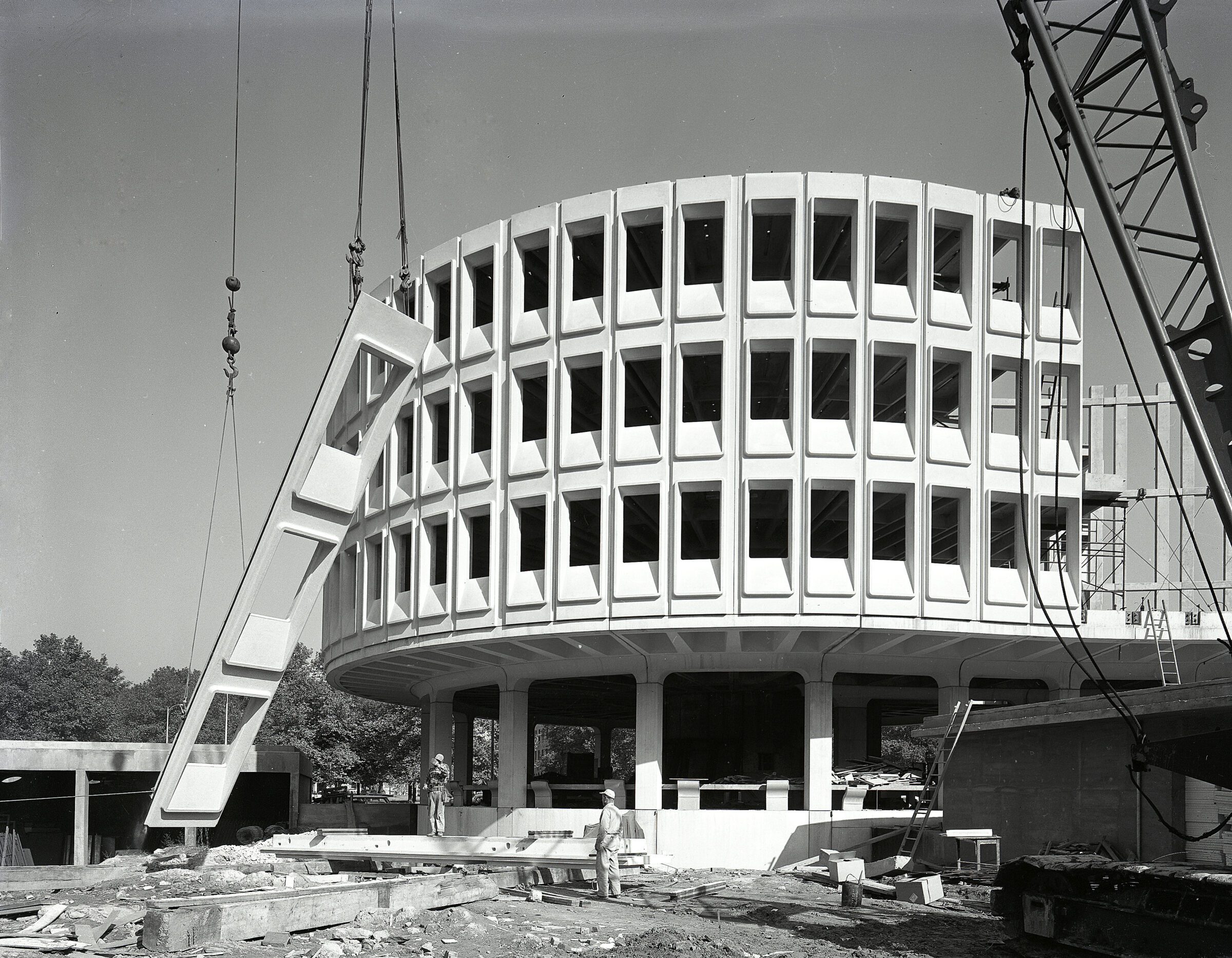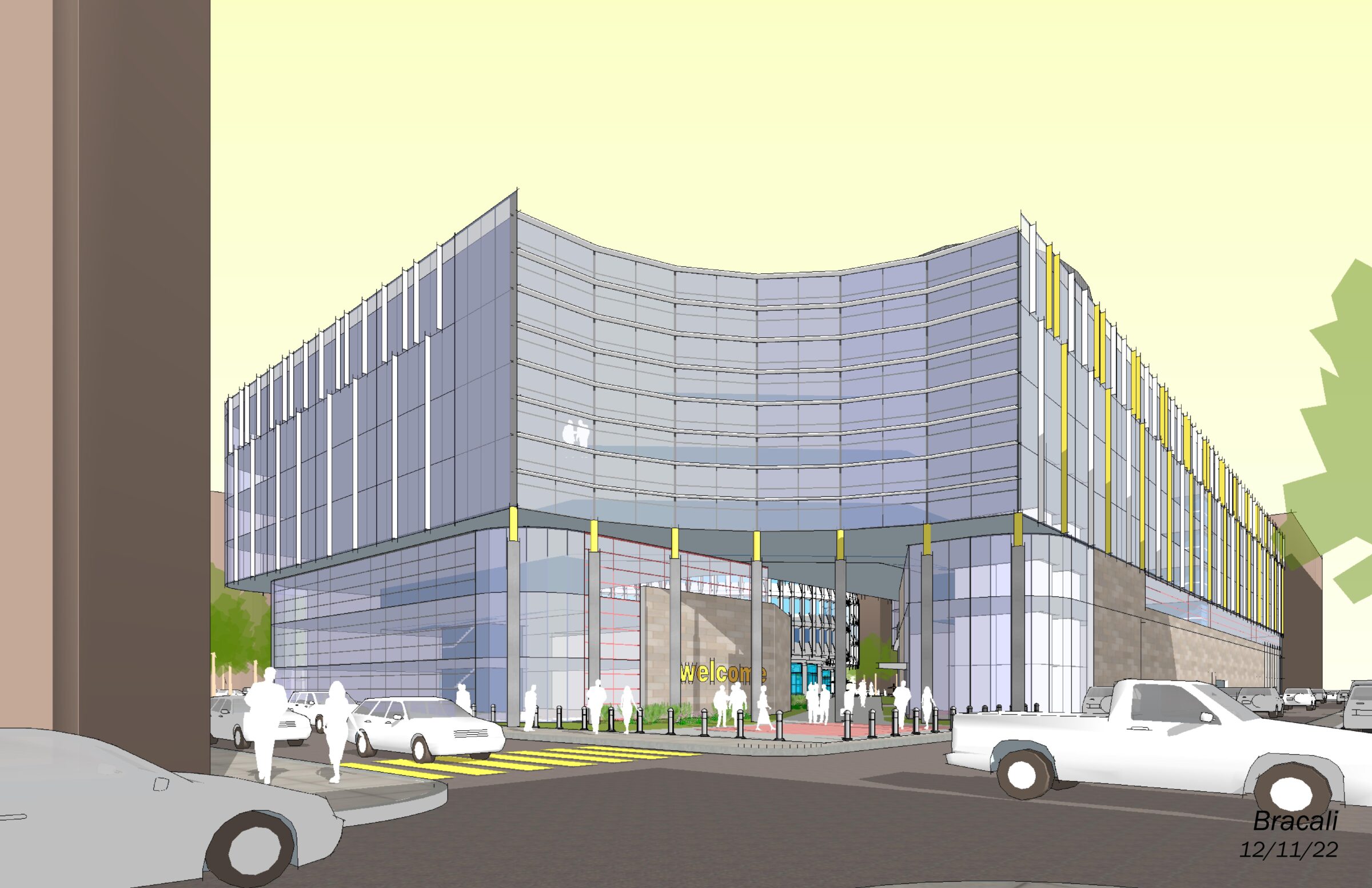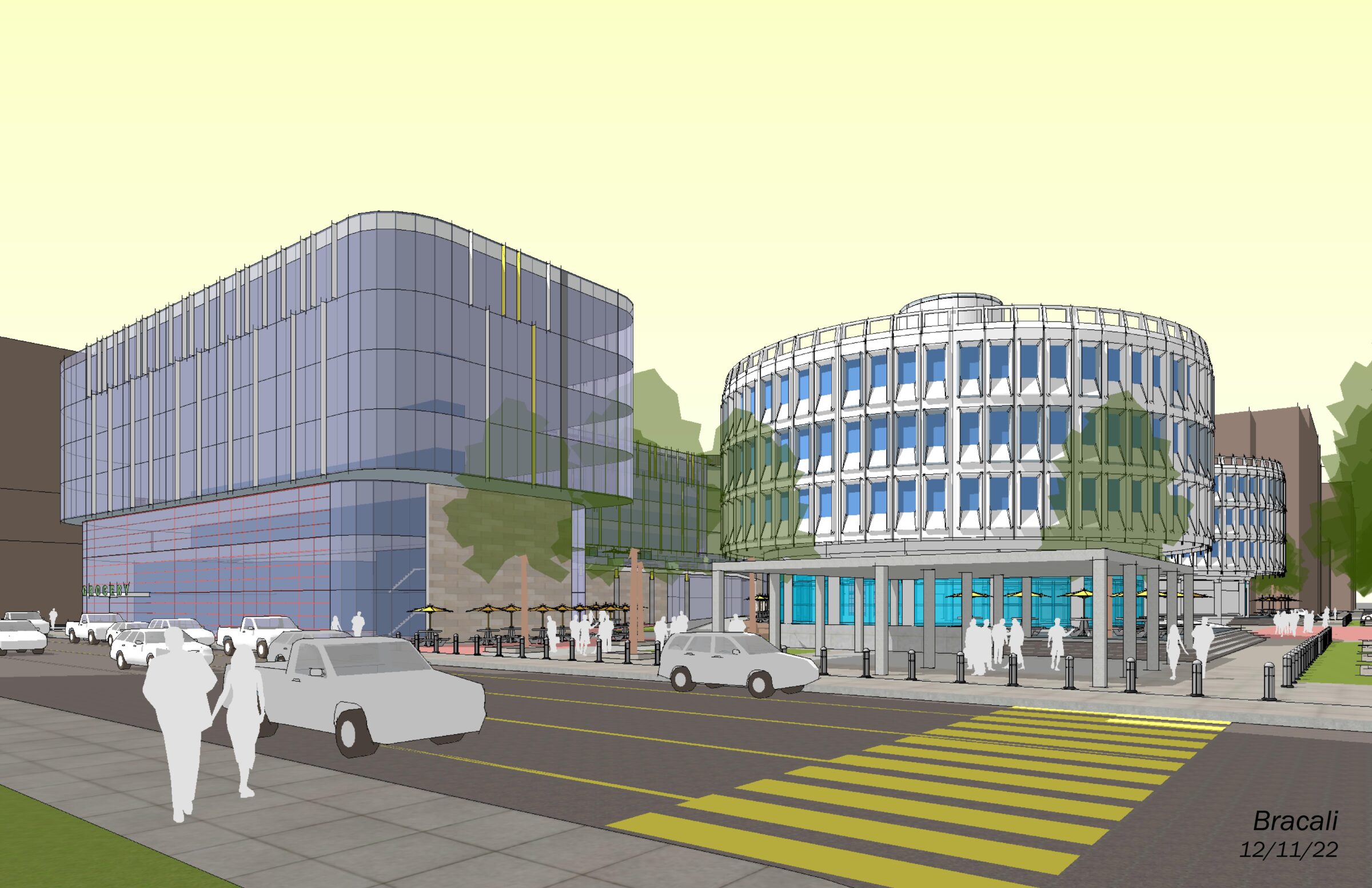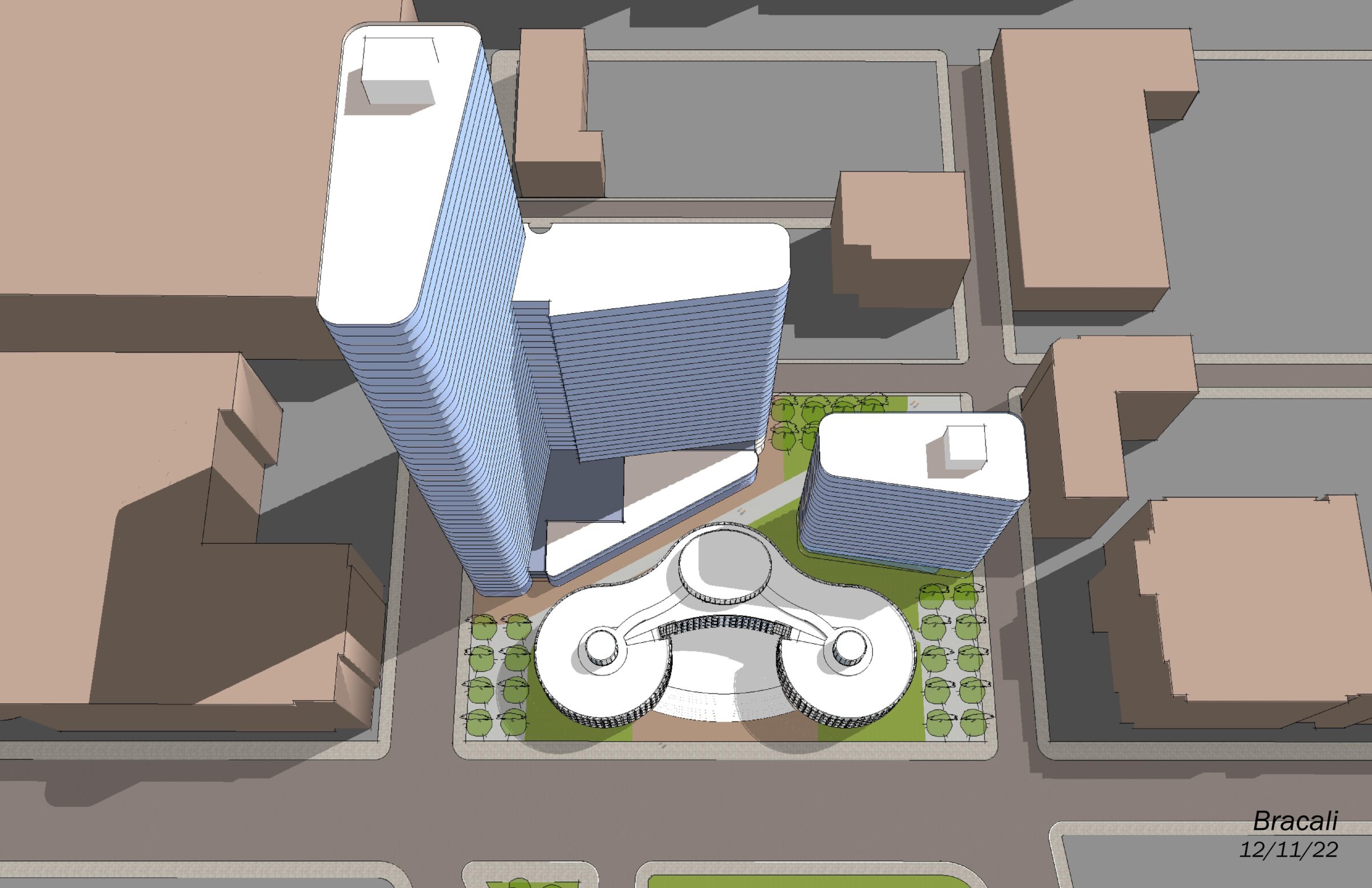Reuse Possibilities
The Police Administration can and should be repurposed. It is an immense 125,000 sq ft, multi-floor structure. It is comprised of almost 90% precast concrete, structurally sound, and only around sixty years old. To demolish this building would represent a waste of multiple kinds.
As part of our ongoing advocacy for the reuse of the Roundhouse, we invited designers, students, and community members to share bold, preservation-minded visions for its future. A symposium in October 2025 showcased six visionary reuse concepts for the Roundhouse while sparking dialogue about its complex legacy and future.

The Roundhouse under construction in 1960. The Roundhouse was one of the first buildings that tested and demonstrated the new possibilities of architectural precasting.
In 2022 the Philadelphia Police Department relocated its headquarters to the former Inquirer Building (400 N. Broad St). The City of Philadelphia intends to issue an RFP later in 2023 for the sale and redevelopment of the Roundhouse parcel at 700-34 Race Street. From August 2022 through February 2023, a community engagement effort overseen by the city’s Department of Planning and Development considered both the site’s complicated past and solicited ideas for future development. The final report, Framing the Future of the Roundhouse, released in March 2023 emphasizes community interest in the following:
- Preserving the architectural masterpiece
- Opening the site to the public, incorporating green space, and creating walkable spaces
- Using the building for community-facing purposes
- Acknowledging the building’s dark past, and providing a place for healing
- Site redevelopment benefitting Chinatown
The former Philadelphia Police Headquarters can and should be preserved as the anchor and catalyst for an invigorated Franklin Square-Chinatown neighborhood, complete with walkable public spaces, affordable housing, green spaces, spaces for community-oriented services, and a recognition of the past wrongs committed by the Philadelphia Police Department housed in the building.
The building itself is an internationally-acclaimed masterpiece of midcentury modern architecture, designed by the esteemed Philadelphia firm Geddes Brecher Qualls Cunningham. Designed and built using state-of-the art precast concrete, the building’s curvilinear, sculptural form evokes midcentury classics such at Eero Saarinen’s TWA Terminal and Dulles Airport, and Jan Utzon’s Sydney Opera house.
To demonstrate the development potential of the site, the Preservation Alliance commissioned conceptual architectural renderings of the site. These renderings model how future development of the site can accommodate preservation of the Roundhouse, including the introduction of desired programmatic uses as well as opportunities for additional development, all primarily sited on the parcel’s large surface parking lot to the south. Current zoning would allow a range of configurations, from a tall, high rise to lower-slung infill, with allowable uses ranging from residential, commercial to institutional, or some combination of these.
Docomomo US/ Greater Philadelphia, in collaboration with the Preservation Alliance, has prepared and submitted a nomination to the Philadelphia Register of Historic Places, which would protect the building from demolition and insensitive alteration. At the November 2024 Historical Commission meeting, the Commission narrowly rejected designation in a 6-6 vote, as a tie vote fails. While this outcome is not what we hoped for, we remain steadfast in our commitment to advocate for the reuse of this clearly significant structure.
It is our hope that any forthcoming RFP strongly encourages, if not mandates, retention of the Police Administration Building, similar to recent dispositions of former city facilities such as the Family Court Building at 1801 Vine St and the District 1 Health Center at 500-10 S. Broad St, both of which are currently listed on the Philadelphia Register of Historic Places.
Why repurpose The Roundhouse?
The Roundhouse is an architectural and engineering landmark.
It is a prominent example of the Philadelphia School of architecture that reached its height of popularity and influence in the 1960s and ‘70s.
It was designed by an internationally-recognized architect who was a native of Philadelphia.
It used an innovative structural system that influences building design and construction to this day.
It is an immense 125,000 sq ft, multi-floor structure, comprised of 90% precast concrete, in remarkably good condition, structurally sound, and only sixty years old.
To demolish this building would represent a waste of multiple kinds.
It offers a unique opportunity to reclaim and repurpose a contested site of public memory
The parking lots on the south side of the building present an opportunity for new, construction that would strengthen the economic vitality and quality of life of Chinatown and the city as a whole.
Next Up:



